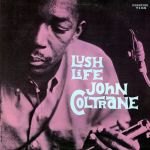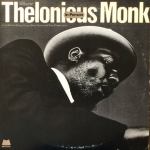 More of the Music of The Beatles
More of the Music of The Beatles
Reviews and Commentaries for Abbey Road
Presenting another entry in our extensive listening in depth series with advice on what to listen for as you critically evaluate your copy of Abbey Road.
Here are some albums currently on our site with similar track by track breakdowns.
For all you record collectors out there, please note that no pressing from 1969 has ever won a shootout. If you have an Apple UK first pressing, we would love to send you one that sounds better than yours, if you can justify the kind of bread we charge for the privilege of owning a masterpiece of music such as this.
This is the final statement from The Beatles. To take away the power of their magnum opus by playing it through inadequate equipment makes a mockery of the monumental effort that went into it. Remember, the original title for the album was Everest. That should tell you something about the size and scope of the music and sound that the Beatles had in mind.
Obsessed? You Better Believe It
Abbey Road is yet another record we admit to being obsessed with.
Currently we have identified about 150 that fit that description, so if you have some spare time, check them out.
Side One
Come Together
This track and I Want You are both good tests for side one. They tend to be smooth, but what separates the best copies is deep, punchy bass. Without a good solid bottom end, these songs simply don’t work.
Something
When the choruses get loud on this song, most copies will be aggressive. You’ll want to turn down the volume. With Hot Stampers, the louder the better. The sound stays smooth and sweet.
Maxwell’s Silver Hammer
Probably the toughest test on side one. The loud banging on the anvil can be pretty unpleasant if you don’t have a well-mastered pressing.
Also, this track has a tendency to be a bit lean and upper midrangey on even the best copies.
Oh! Darling
Octopus’s Garden
I Want You (She’s So Heavy)
Listen to Paul’s bass on this track. When you have a good copy and the bass notes are clearly defined, you can hear him doing all kinds of interesting things throughout the song. I remember playing the MoFi not long ago and noticing how that pressing’s lack of bass definition robbed Paul of his contribution to so many of these songs. When the bass is blubbery, it’s difficult to follow his parts.
Side Two
Here Comes the Sun
Because
The best pressings are full of TUBEY MAGIC here — sweet and smooth, but still present and clear. There should be no trace of grain or spi on their voices if you have a good copy. This is DEMO DISC MATERIAL. If you have the system for it, you can show people the sound of the Beatles in a way few have ever heard.
You Never Give Me Your Money
Sun King
Mean Mr. Mustard
One of the toughest tests for side two, along the lines of Maxwell’s Silver Hammer.
Polythene Pam
She Came in Through the Bathroom Window
Golden Slumbers
I’ve come to realize that this is a Key Track for side two, because what it shows you is whether the midrange of your pressing — or your system — is correct.
At the beginning Paul’s voice is naked, front and center, before the strings come in. Most Mobile Fidelity pressings, as good as they may be in other areas, are not tonally correct in the middle of the midrange.
The middle of the voice is a little sucked out and the top of the voice is a little boosted.
It’s really hard to notice this fact unless one plays a good British pressing side by side with the MoFi.
Then the typical MoFi EQ anomaly becomes obvious. It may add some texture to the strings, but the song is not about the strings.
Having heard a number of audiophile systems (especially recently) that have trouble getting this part of the spectrum right, it would not be surprising that many of you do not find the typical MoFi objectionable, and may even prefer it to the good British copies. The point I’m belaboring here is that when it’s right, it’s RIGHT and everything else becomes more obviously wrong, even if only slightly wrong.
The Heart of the Midrange
For a while in my record reviewing system many years ago I had a relatively cheap Grado moving magnet cartridge. The midrange of that cartridge is still some of the best midrange reproduction I have ever heard. It was completely free of any “audiophile” sound. It was real in a way that took me by surprise. I played Abbey Road with that cartridge in the system and heard The Beatles sound EXACTLY the way I wanted them to sound.
Exactly the way I think they SHOULD sound, in my mind’s ear. Playing the very same record on much more expensive front ends, with much more expensive moving coils, was disappointing at that time. It’s easy to lose sight of the heart of the music when the equipment dazzles us by doing so many other things well.
Good moving coils are amazingly spacious, refined, sweet, extended, three-dimensional and all that other good stuff.
But they don’t always get the heart of the music right. And it’s good to hear something that may be more crude but at the same time more correct in order to bring our listening journey back to a truer course.
Alternative Sound
I think that people who listen to CDs exclusively — One Format listeners as I like to call them — suffer greatly from a lack of an alternative or comparison sound. It’s easy to get used to the “CD sound” and forget that all that digital garbage doesn’t really belong in music. Records have their own problems, but their problems don’t give me a headache the way the problems of CDs do.
Carry That Weight
The End
Her Majesty



 The Mud Pie Maker Himself
The Mud Pie Maker Himself





